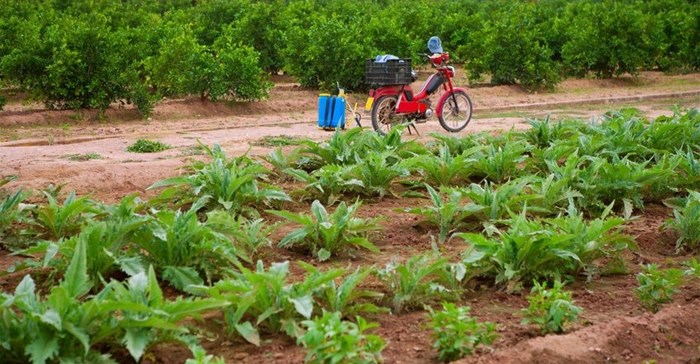To overcome the significant challenges facing the agricultural sector, smallholder farmers should place more emphasis on improving efficiency and financial and farm management skills. Among other economic challenges, the industry is facing it's most severe drought in 23 years and it has now become 'survival of the fittest'.

©TONO BALAGUER Ltd via
123RFDawie Maree, Head of Information and Marketing at FNB Agriculture, says "smallholder farmers must not sit back, wait and rely on support from state programmes and agribusinesses, but should rather proactively look for ways to develop profitable farm operations through improved farm management." He says that smallholder farmers have an important role to play in ensuring household food security and the overall growth of the agricultural sector in South Africa and the continent as a whole.
Farmers should take the bull by the horns
According to a report by the International Fund for Agricultural Development (IFAD), there are about 500 million smallholder farms worldwide and more than two billion people depend on them for their livelihoods. These small farms produce about 80 percent of the food consumed in Asia and sub-Saharan Africa.
Maree says while there is still a lot of work to be done by the government and private sector to develop these businesses from a funding and support perspective, smallholder farmers should 'take the bull by the horns' and adopt more efficient and sustainable farming techniques in order to survive. Many smallholder farmers that have access to funding are still not taking advantage of the vast knowledge and technology available to increase crop yield and productivity. For example, adopting techniques such as selecting the right seeds and crop rotation to increase yield and generate more income.
"Unfortunately, the reality is that input costs will continue to increase and economic conditions will not improve anytime soon. Therefore, smallholder farmers will have to use all the resources available to them to increase their potential in order to survive," says Maree. "Change doesn't happen overnight. Developing long term strategies to introduce and implement changes will go a long way to ensuring the sustainability of smallholder farmers."
Farming is a business
Furthermore, smallholder farmers that aspire to break into the commercial market must remember that farming is a business. Optimal management of the farm's resources, finance operations and production processes is essential for growth. "For instance, smallholder farmers that have been financially impacted by droughts and are concerned about meeting their debt obligations should know when to approach their bank for assistance. Similarly, the farmer should know and understand the importance of insuring crops during planting season. These form part of the important aspects of farm management," adds Maree.
He says the agricultural sector in South Africa is already dealing with a multitude of issues ranging from policy uncertainty, power and water shortages, rising input costs and unpredictable weather conditions. On the other hand, smallholder farmers continue to grapple with issues such as access to markets and finance, transport and infrastructure costs.
"It has never been more important for smallholder farmers to focus on improving farm management and exploring high yield farming methods in order to survive these tough economic conditions," concludes Maree.




































